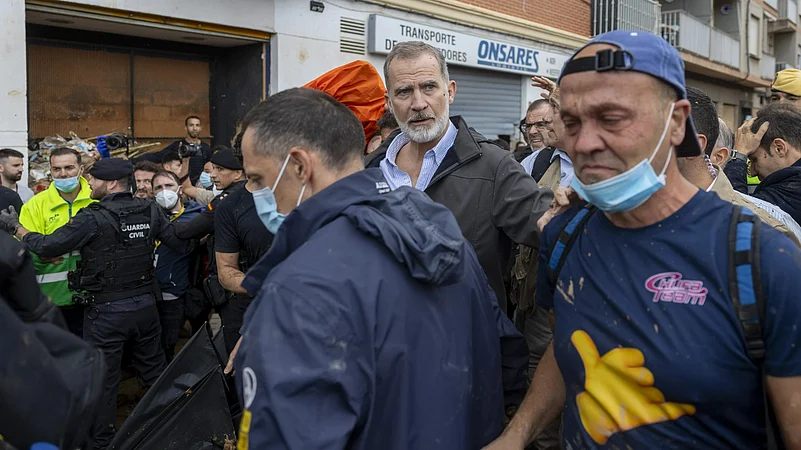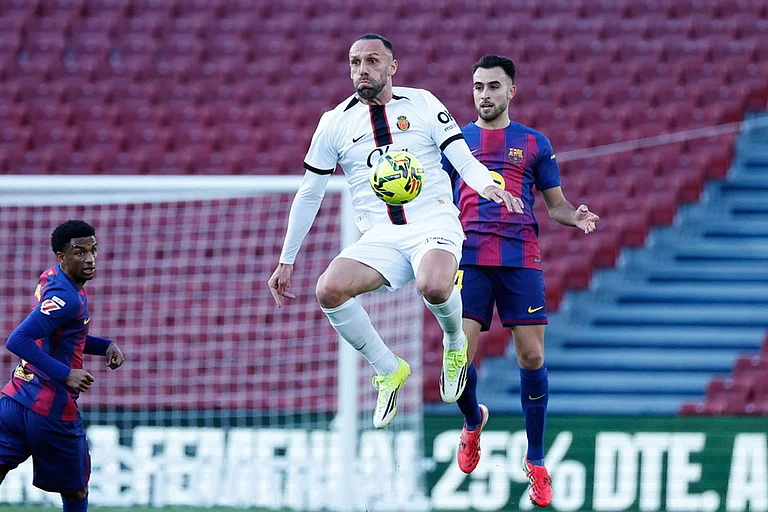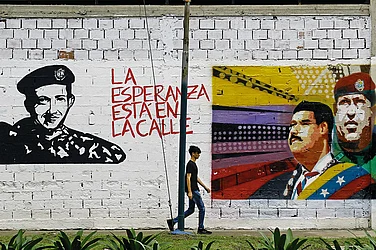While Spain’s Valencia region is struggling with the aftermath of the deadliest flood in its history, King Felipe VI and Queen Letizia toured the hard-hit town of Paiporta on Monday. However, the royal couple faced a hostile response from the residents who were frustrated with the government's response.
The royal visit took place in the wake of the floods, with King Felipe accompanied by Prime Minister Pedro Sánchez and regional governor Carlos Mazón. As the king and the queen arrived, agitated people expressed their frustration with the government's response to the devastating floods, leading to booing, egg-throwing, and chants of “murderer” directed at the king and other officials.
The security personnel quickly deployed umbrellas to protect the royal couple from objects thrown at them. Despite the chaos, King Felipe remained composed, engaging with distraught residents, while Queen Letizia appeared visibly shaken, holding her head in her hands as she spoke with those affected.
Video footage shared on social media showed the incident.
Why are flood-affected people angry?
The frustration of flood-affected people stems from what many see as a slow and uncoordinated response to the disaster. According to residents of Valencia, the administration’s lack of vigilance led to the devastation as they did not send alerts on time. Many said they received official alerts only after the flooding had already reached catastrophic levels.
In a statement acknowledging the public's anger, Prime Minister Sánchez described the situation as “not enough,” while praising the “exemplary” conduct of the king.
With at least 214 confirmed deaths and more expected, the fallout from the floods has led to serious questions and backlash from public about emergency preparedness. In addition to delayed alerts, the Spanish federal government also faced delays in releasing emergency funds, as a lack of coordination between political parties complicated the response efforts.
How are people dealing with the aftermath?
The people have come together to support each other. Thousands of volunteers have arrived in Valencia to help clear debris and provide essential supplies.
On Saturday, farmers also joined in with their tractors into urban areas to assist in cleanup efforts, while local organizations and citizens mobilized to donate food, clothing, and other necessities. “The countryside is once again showing its solidarity,” Valencia’s agricultural association said on social media.
The city’s famous soccer club has opened its stadium, Mestalla Stadium, as an emergency center, where people could drop off bags of food, clothes, and bottles of water, for those in need.
“The image of Mestalla filled with people coming together, arriving to donate products, and applauding each time a truck leaves full of food and basic necessities, will be unforgettable,” the New York Times quoted Javier Solís, the club’s corporate director.
Although the meteorology department of Spain, AEMET, dismissed the red alert by Monday, orange and yellow warnings are still in effect along with storm warnings for parts of Castellon and Tarragona.
Local officials have urged residents to evacuate high-risk areas as soon as possible as cleanup and recovery efforts proceed.
While the military and police have been deployed, many citizens have raised concerns over delays and inefficiencies in the official response.


























